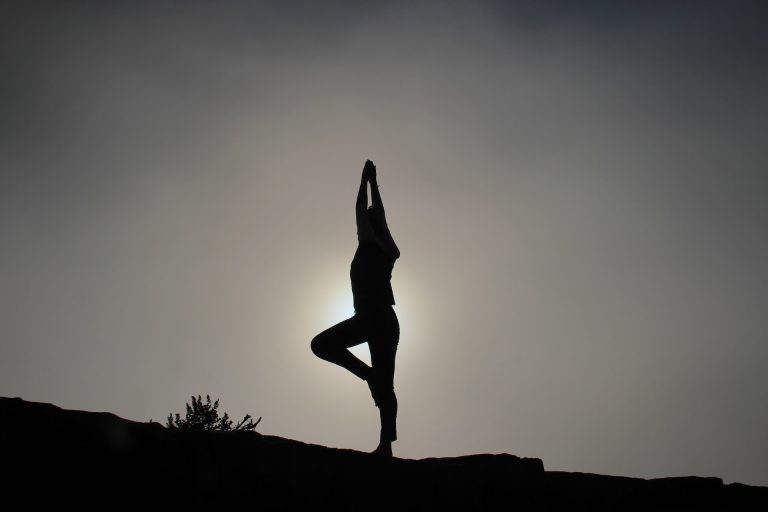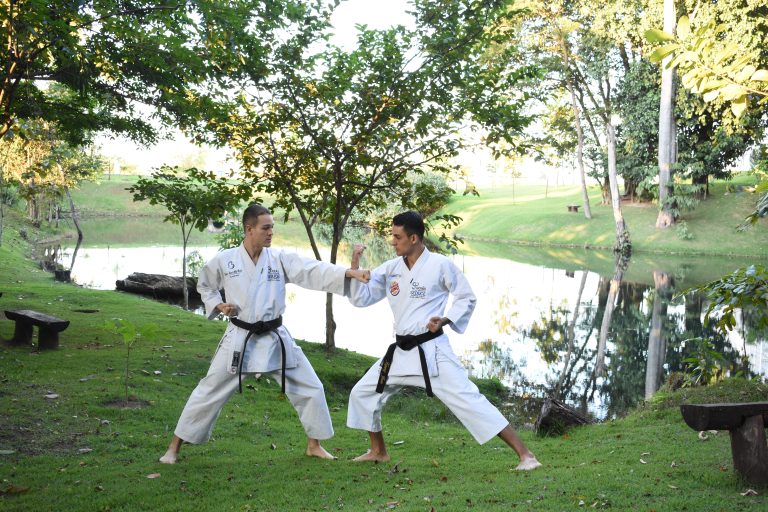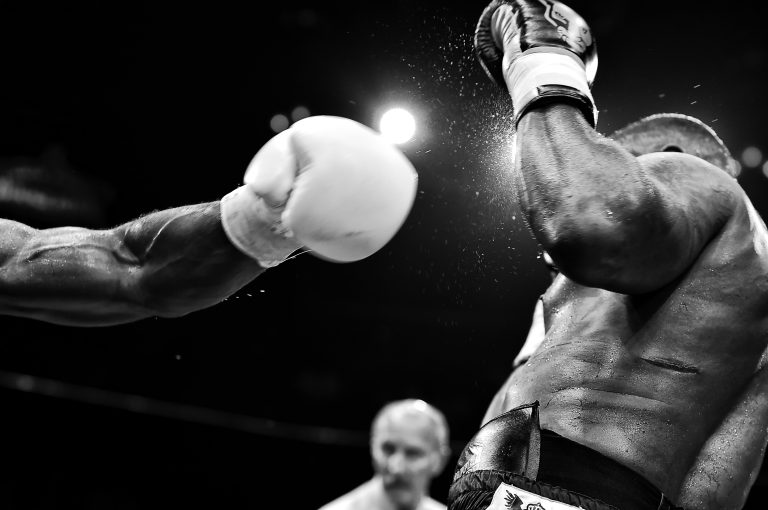What to Know Before Starting Karate
Karate, a popular martial art form, is known for its quick, powerful strikes and disciplined techniques. If you’re thinking of starting karate, there are a few things you should know before you begin.
Karate is more than just a physical exercise. It focuses on building character, discipline, and respect. Therefore, it’s essential to understand the fundamentals of karate and the benefits that come with practicing this martial art form.
In this blog post, we’ll discuss the essential things you should know before starting karate. Read on to learn more.
1. Choose The Best Type Of Karate For You
There are various types of karate out there, each with different techniques and practices. Some focus on speed and agility, while others emphasize strength and power. It’s essential to research and choose the right form of karate that aligns with your interests and goals.
For example, Shotokan karate emphasizes basic techniques such as kicking, striking and blocking, while Goju-ryu is known for its circular and fluid movements. Similarly, Kyokushin karate emphasizes strength and endurance through its full-contact sparring.
Research and understand the different types of karate, and choose the one that best suits your interests and goals.
2. Understand The Philosophy Behind Karate
Karate is more than just a physical exercise. It’s a way of life that emphasizes building character, discipline, and respect. Therefore, it’s essential to understand the philosophy behind karate.
Karate philosophy is based on the five principles: character, sincerity, effort, etiquette, and self-control. Practicing these principles can ultimately help improve your performance, both inside and outside the dojo.
Understanding the philosophy behind karate is crucial to gain a deeper appreciation of the art form and to cultivate discipline and respect.
3. Find A Reputable Karate School
A solid foundation is essential when starting karate. Therefore, it’s crucial to find a reputable karate school that has experienced instructors and a structured training program.
Check the credentials and reputation of the karate school you’re considering. Read reviews, ask for references, and verify the instructor’s qualifications. A good karate school will provide a safe and supportive environment for learning and growth.
4. Learn The Basics Before Advancing
Karate is a complex and disciplined martial art form that requires dedication and patience. Therefore, it is essential to learn and master the basics before advancing to more complex techniques.
Learning the basics may seem tedious in the beginning, but it lays a solid foundation for advancing to more advanced techniques.
Remember, there is no shortcut to mastering karate. Like any other martial art form, it requires consistent practice, dedication, and patience.
5. Safety First
Safety should always be your top priority when practicing karate. Karate involves various techniques that may cause injury if not performed correctly.
Make sure to follow the instructions of your instructor carefully. Wear proper protective gear such as hand wraps, gloves, and shin guards when sparring or doing contact drills.
Additionally, it’s essential to listen to your body and avoid overexerting yourself, especially during the initial stages of training.
6. Consistency is Key
Consistency is crucial when practicing karate. Karate requires regular practice to improve technique, strength, and flexibility.
Make sure to attend regular classes, and practice at home as well, even if it’s just a few minutes a day. Consistent practice, no matter how small, can help you progress and achieve your goals.
In conclusion, starting karate is an excellent way to build strength, discipline, and resilience. However, it’s crucial to understand the fundamentals of karate, choose the right type of karate, find a reputable karate school, learn the basics, prioritize safety, and practice consistently.
Starting karate can be an exciting and rewarding journey when approached with the right mindset and proper preparation.
What to Know Before Starting Karate: Frequently Asked Questions
If you’re considering starting karate, you may have a few questions. Karate is a martial art that can be both challenging and rewarding. However, before committing to classes, it’s important to know what you’re getting yourself into. In this article, we’ll answer some of the most frequently asked questions about starting karate.
1. What Equipment Do I Need for Karate?
One of the great things about starting karate is that you don’t need a lot of equipment to get started. Most martial arts schools provide students with a uniform called a gi. You’ll also need a belt to hold up the gi pants. Most schools require beginners to wear a white belt, which indicates a beginner level. As you progress, you’ll earn different belt colors to indicate higher skill levels.
You may also want to invest in some protective gear, such as hand wraps and boxing gloves, especially if you plan on sparring.
2. What Are the Benefits of Karate?
Karate offers numerous benefits for both children and adults. Physically, karate can improve your balance, flexibility, and coordination. It also provides a great cardio workout, which can help improve your overall health.
Mentally, karate can help you develop discipline, focus, and confidence. It can also be a great stress reliever, allowing you to leave your problems at the door and focus on the practice.
3. What Can I Expect in My First Karate Class?
In your first karate class, you can expect to learn some basic movements and stances. You’ll likely spend some time learning how to punch and kick, as well as how to block and dodge. You’ll also learn some basic kata (choreographed patterns of movements) and possibly some self-defense techniques. It’s important to come to class with an open mind and be prepared to learn.
4. How Long Does It Take to Get a Black Belt?
Getting a black belt in karate is not a quick process. It can take several years of consistent practice and dedication to earn this rank. Depending on the school, it may take anywhere from 3 to 5 years to earn a black belt. However, it’s important to remember that getting a black belt is not the ultimate goal. It’s simply a milestone along the way to continuous improvement.
5. Is Karate Safe?
Like any physical activity, karate does carry some risk of injury. However, if you practice safely and follow your instructor’s guidance, the risk of injury is minimal. Most injuries in karate are minor, such as bruises or strains. It’s important to always warm up properly before class and to wear any necessary protective gear.
6. Do I Need to Be in Shape to Start Karate?
While being in good physical shape can certainly be an advantage, you don’t need to be in top physical condition to start karate. In fact, karate is a great way to get in shape. As you progress, you’ll develop strength, endurance, and flexibility. It’s important to listen to your body and take breaks when needed, especially in the beginning.
7. What is the Etiquette in Karate?
Karate is based on respect, and etiquette is a big part of the practice. You should always show respect to your instructor and fellow students. This means bowing when entering and exiting the dojo (training area), bowing to your partner before and after practice, and following any other dojo rules. It’s also important to keep the dojo clean and organized.
8. How Much Do Karate Classes Cost?
The cost of karate classes can vary widely depending on the school and location. Some schools charge per class, while others charge a monthly or yearly fee. On average, expect to pay anywhere from $50 to $200 per month for karate classes. It’s important to shop around and find a school that fits your budget and your goals.
What to Know Before Starting Karate: A Comprehensive Guide
Karate is a martial art that originated in Okinawa, Japan. It’s known for its powerful strikes, graceful movements, and focus on self-defense. Whether you’re looking to learn self-defense techniques, improve your fitness, or become a competitive athlete, starting karate can be a challenging and rewarding experience.
Before you take your first lesson, there are several important things you should know. In this article, we’ll cover the basics of what you need to know before starting karate to ensure you’re well-prepared for your new martial arts journey.
1. Choose the Right Karate Style
When it comes to karate, there are several different styles to choose from, each with their own unique techniques and philosophies. Shotokan, Goju-ryu, and Shito-ryu are just a few examples of popular karate styles. Before you start training, do some research to find a style that aligns with your goals and interests.
Some styles focus more on the physical aspects of karate, such as powerful strikes and kicks, while others prioritize the philosophical elements, like discipline and self-control. It’s important to choose a style that resonates with you to ensure you enjoy your training and stick with it in the long term.
2. Find a Reputable Dojo
After selecting a karate style, the next step is to find a reputable dojo. A dojo is a training facility where you’ll learn the foundations of karate such as stances, strikes, kicks, blocks, katas (choreographed patterns of movement), and sparring.
Before you commit to a dojo, research the instructors‘ credentials and the facility’s reputation. Look for reviews and testimonials from previous students to learn about their experiences. Taking the time to find a reputable dojo will ensure you receive quality instruction and reach your karate goals.
3. Invest in the Right Gear
To practice karate, you’ll need to invest in some essential gear. The most important piece of equipment is a gi, a traditional karate uniform consisting of a lightweight jacket and pants. You’ll also need a belt to indicate your rank and matching colored pants, handwraps or hand pads, and mouthguard for safety when sparring.
When shopping for gear, prioritize quality and comfort over style. A well-made gi that fits properly will help you move comfortably and facilitate proper technique execution, making you a better karateka.
4. Learn the Basic Terminology
Like all martial arts, karate has a unique terminology for techniques and forms. It’s essential to learn the basic terminology so that you can understand your instructor’s teachings and communicate with other students.
Common karate terminology includes basic stances like ichi-dachi (attention stance) and kokutsu-dachi (back stance), strikes like oi-zuki (lunge punch) and mawashi-geri (roundhouse kick), and kata like Heian Shodan and Tekki Shodan. Study these terms and regularly practice saying them aloud to build your vocabulary.
5. Develop Patience and Perseverance
Starting karate is a journey that requires patience and perseverance. It takes time and dedication to master techniques and progress through the ranks.
Developing patience and perseverance will help you stay motivated and focused, even when you encounter challenges or plateaus. Recognize that progress is not always linear and that it’s natural to experience setbacks or barriers. Trust the process and stay committed to your goals, and you will reap the rewards.
Conclusion
Starting karate can be an exciting and transformative experience. By choosing the right style, finding a reputable dojo, investing in the right gear, learning the basic terminology, and developing patience and perseverance, you’ll be well-equipped to start your martial arts journey on the right foot.
Remember that karate is not just about physical strength and technique mastery. It’s also about developing your mental and emotional discipline, improving your confidence, and building meaningful relationships with fellow martial artists. Keep an open mind, stay humble, and enjoy the process.
Inhaltsverzeichnis






